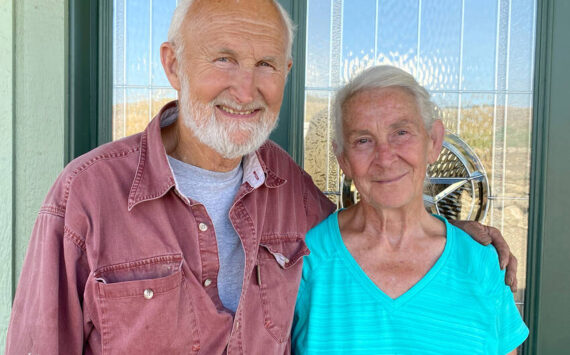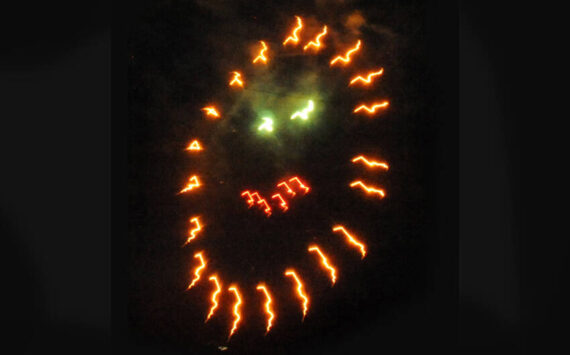TONASKET – North Valley Hospital is proceeding with the replacement of its aging boiler system, a portion of which is inoperative and will leave the hospital inadequately heated this fall if the issue isn’t addressed immediately.
Kelly Cariker, who doubles as the Facilities Director and Chief Information Officer, reported on the status of the boiler project at the Thursday, July 11, NVH Board of Commissioners meeting.
The boiler system will be replaced by a geothermal system, he said, with the project to be taken on in phases. The first phase will deal with the portion of the system that is currently inoperative.
The McKinstry Construction Corporation, which has taken on numerous health care facilities projects and is overseen by the state’s Department of Enterprise Services, presented the hospital with a number of options, Cariker said.
The options included:
– replace the boilers with propane boilers;
– replace the boilers with the same type of fuel oil type boilers currently used;
– replace the boilers with electric boilers;
– replace the boilers with a geothermal system, which can provide both heat and cooling at the same time.
“Currently we have the fuel oil, basically using diesel to make steam, then cooling the steam down to make hot water,” Cariker said. “It’s really inefficient. Because we have the one boiler that is down we’ll be unable to provide enough heat or hot water once the weather changes, which will probably be in October.
“That’s an emergency situation.”
Cariker said that McKinstry, along with a team that included hospital senior leadership and board members Lael Duncan and Dick Larson, reviewed factors that included system cost, energy usage and efficiency, redundancy, versatility, maintenance, environmental impact, phasing flexibility, equipment life, system turndown, future expandability, reliability, complexity of control systems, fuel storage considerations and amount of space required.
The consensus, Cariker said, was that while a geothermal system would carry greater up front costs, for the long term it was the best solution for the hospital’s needs.
“It will be a hybrid system,” he said. “Phase I would be a smaller propane boiler to provide redundancy if the geothermal system ever went down. It also enables us to phase in, because the first phase is to replace the non-working boiler right now and get us through the winter.
“Then we can look at the other phases, which would include putting in wells for the geothermal. But this gives us the time to get through the winter.”
With time of the essence, CEO Linda Michel individually polled the rest of the board members before authorizing McKinstry to proceed.
“We had to give them an answer or we won’t meet the Ocotber time frame for the first phase,” Michel said. “All of the board members voted ‘yes,’ so we did inform then they could go ahead with that first phase.”
Duncan, who participated in the meeting via phone, said she had great confidence in McKinstry.
“They are internationally recognized as experts … they know what they’re doing,” Duncan said. “They’ll be assisting us with grant writing to help fund this. They have connections with the Department of Commerce…
“I’m hopeful we can really upgrade and sustain the system as a long term system instead of just a Band-Aid.”
The next step was for McKinstry to put together a guaranteed maximum bid for the project.
“The Department of Enterprise Services … looks over everything McKinstry does so we can make sure we’re being as cost-effective as we can,” Cariker said. “They guarantee the maximum amount. If they go over that, McKinstry pays for it. If they come in under that, we get the money back. So that’s kind of a win-win scenario.”
Cariker said that, with the state budget finalized, there may be some grant money available for the project that McKinstry has begun researching.
“There is … $10 million for small communities,” he said. “They’re breaking that up into maximums of half a million. (McKinstry) is also looking to see if there are emergency monies available, and we’re pursuing that at the same time.”
Duncan reiterated her position from a previous meeting that asking for legislative help would be appropriate, given the circumstances.
“It’s time for us to get hold of Rep. Joel Kretz (R-Wauconda) and let him know that we need some sort of assistance with this project at the next session in January,” she said. “We can get through Phase I with the propane boiler, but it’s completely appropriate to ask the state for additional assistance with funding this improvement.”
Medicare, Medicaid still holding funds
Patient Financial Services director Jana Symonds presented a synopsis compiled by her and chargemaster Patrick Plumb that illustrated where and why Medicare and Medicaid have been withholding funds, which has been a major factor in driving the hospital district’s warrants back up over $1.9 million.
The funds are being withheld in several different manners for different reasons, which include national-level software glitches and system and procedural changes.
The percentage of hospital payers in Medicare is 44 percent; those in Medicare managed care plans are 24 percent; and Medicaid recipients are 18 percent. So the effects have been drastic, Symonds said during her presentation, which expanded on information presented at the previous Board of Commissioners meeting.
“Patrick is on a provider outreach board,” she said. “He’s written extensive emails to CMS, Medicare, (Congressman) Doc Hastings, (Senators) Patty Murray and Maria Cantwell, alerting all parties as to what’s happening with our warrants.
“We call it holding our money captive because it’s not at our disposal. We’ve been vocal on letting them know what’s happening and how it’s affecting us.”
In other business, Michel said that papers have been signed for the sale of the Oroville Clinic for more than $600,000.
Michel also said she was pleased that the laboratory received just one “finding” during a recent inspection.
“It was a documentation finding, so I applaud Noreen (Olma) and her staff,” she said. “I’ve never been any place that had only one finding. It’s the auditors’ job to come up with those.”
Also, Long Term Care director Linda Holden said that the nursing home had received 42 new dressers and night stands thanks to the Hospital Foundation’s efforts.
“I just wanted to make a public thank you to the Foundation for gifting us those,” Holden said. “They’re beautiful and getting moved in now. I was wishing Linda Noon would have been here to thank her, so I may have to do this again.”
The Board of Commissioners next meets on Thursday, July 25.
The following meeting, for Aug. 8, will be canceled and rescheduled for Monday, Aug. 5.




